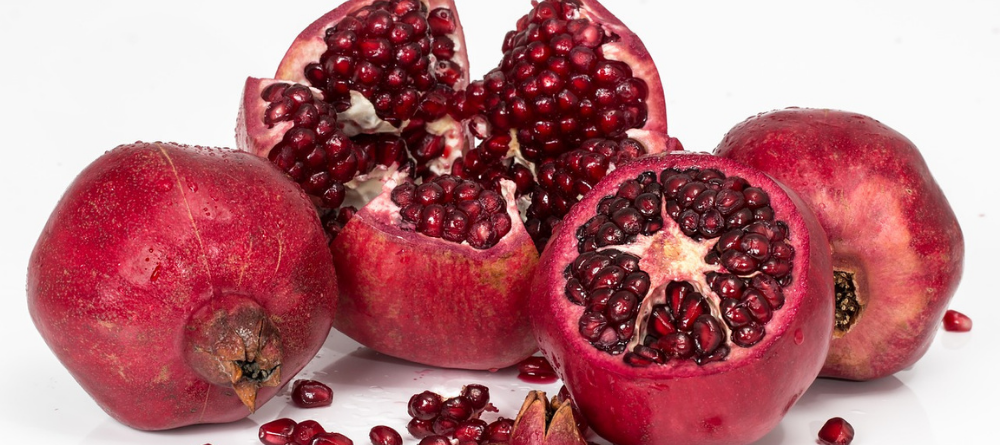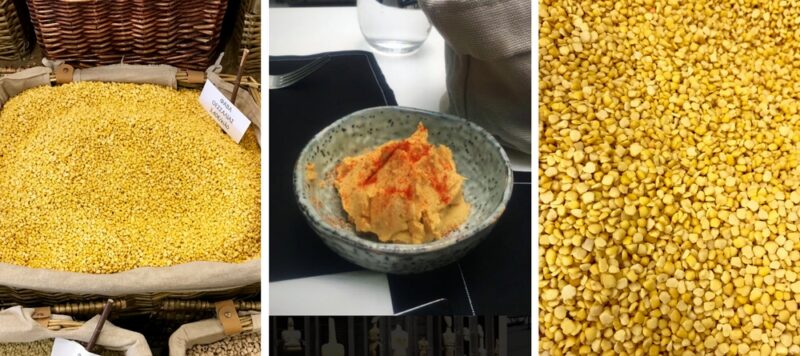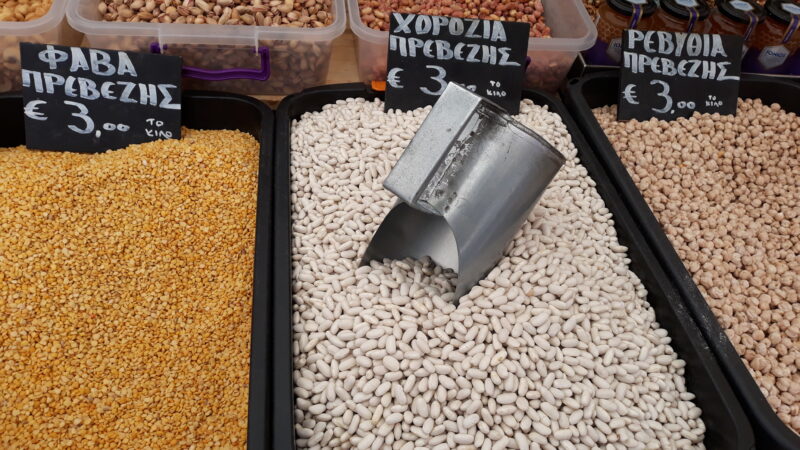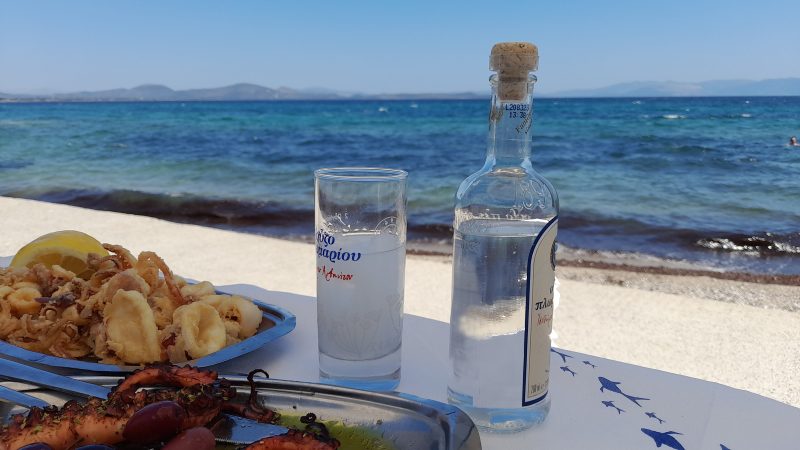The pomegranate in Greece”το ρόδι” (“to rodi” in Greek) is a fruit that can be recognized by its bright red color and its many pulpy seeds called arils.
It was when we arrived in Greece that we really discovered it. We used to think of it more as an exotic fruit!
And yet, the pomegranate isone of the oldest known fruits. It has been harvested for thousands of years all around the Mediterranean. The pomegranate is the fruit of the pomegranate tree, native to Persia . Today, it is grown on almost every continent.
In Greece, during the peak season from October to January, fruit stalls are overflowing with them. A pomegranate in Greece weighs around 300 g. The large apple-shaped fruit starts out green and turns orange-red as it ripens. Be careful, the fruits are non-climacteric, i.e. they do not continue to ripen after picking.
You no doubt know the pomegranate for its health benefits. In fact, it contains many nutrients, including vitamins C, B5 and B6, as well as beneficial minerals.
The pomegranate and the myth of the seasons…
In Greek mythology, the pomegranate was attributed to the divinities of the Underworld.
Hades, the god of the Underworld, snatched Persephone from her mother Demeter and took her to the Underworld. Zeus, father of the gods, forced Hades to return Persephone to her mother. But shortly before her departure, Persephone, who had fallen in love with Hades, ate some pomegranate seeds. And as you can imagine, the law of the underworld is strict: if you eat food from the underworld, you’re condemned to stay there. Hades pointed this out to Zeus, who allowed the lovers to meet again only for part of the year, in autumn (as she had only eaten part of the pomegranate). Persephone was to join her mother for the rest of the year. This explains why we find pomegranates in autumn, the fruit of the underworld.
This myth is also the origin of the the birth of the seasonal cycle .
Pomegranates in Greece, a sign of prosperity and fertility
Even today, the pomegranate still has a strong symbolic value in Greece.
For example, on New Year’s Day, the tradition is to throw a pomegranate in front of your door after having had it blessed. Don’t be afraid to put them everywhere, because the more seeds you spread on the ground, the more prosperity you’ll have for the coming year! This custom, known as “podariko“, is widespread in Greece .
The same goes for wedding festivities, to wish happiness and fertility to the newlyweds. This fruit is also linked to the Eleusis sanctuary not far from Athens. The archaeological site of Elefsina( Eleusis in Greek) was an important place of worship in ancient times. It was here that the famous Elefsina Mysteries were held, initiation festivals that attracted pilgrims from all over the Greek world.
Ceramic pomegranates are also often found in Greek homes, bringing good luck. It can also be a nice souvenir from Greece. You’ll find them in souvenir and ceramics stores. For example, if you’re in Athens, you’ll find some lovely ceramic pomegranates at Mon Coin.

You can also easily find fresh pomegranate juice (pure or mixed with orange juice) on the streets of Athens: A fresh, sweet and slightly tart juice, a real treat to start the day!
Finally, if you want to cook your own pomegranate, first choose fruit whose skin turns from orange-brown to red. The heavier the fruit, the juicier the pulp. Prefer fruit with a smooth, shiny rind that has not dried out and is free of brown spots.
Tips for preparing pomegranates :
- Split the pomegranate in two (horizontally).
- Over a large bowl, hold half a pomegranate in one hand.
- With the other hand, tap the back of the pomegranate with the back of a wooden spoon.
- With each stroke of the spoon, the arils fall to the bottom of the bowl.
But be careful: pomegranate juice stains!
Then you can enjoy it as you wish. Pomegranate’s fragrance blends perfectly with both sweet and savory flavors. Its bright colors bring a ray of sunshine to your plates!
We also recommend making a real grenadine syrup. Our kids love them, and they’re so easy to make! (pomegranate and sugar).
In conclusion, the Greek pomegranate is much more than just a fruit!
To be enjoyed without moderation…
Elodie H.




